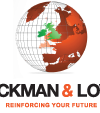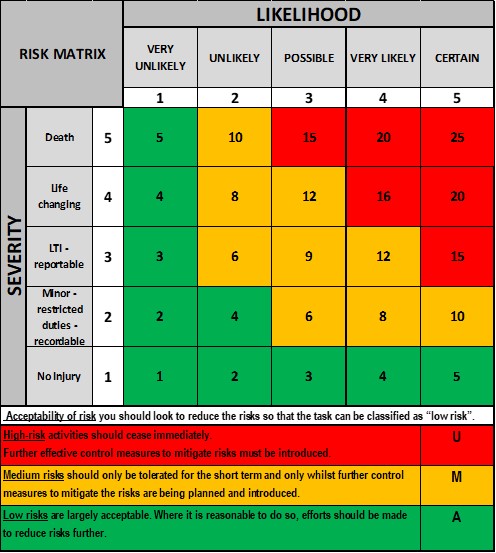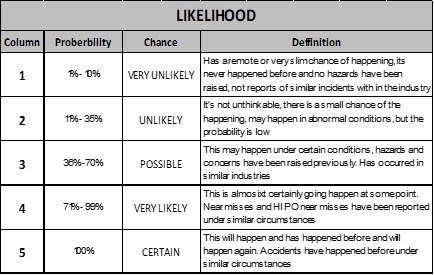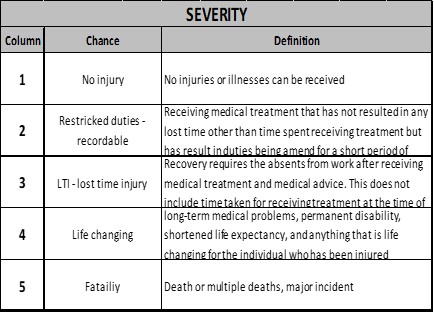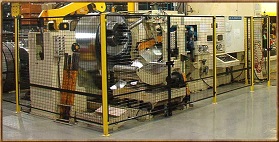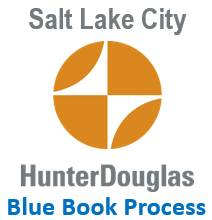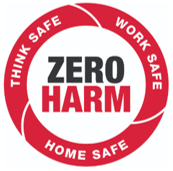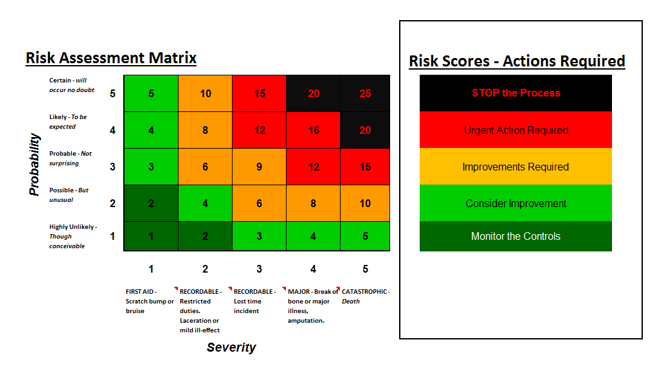Information
-
Site conducted
-
Machine
-
Photo of equipment
-
Document No.
-
Department
-
Conducted on
-
Prepared by
-
-
The purpose of this Machine Safety Assessment is to determine if uncontrolled hazards exist to the specified equipment which could lead to injuries to persons
-
-
Each hazard identified will be assigned a probability and severity ranking which will subsequently be used to determine the overall risk of the hazard. Additionally, an overall risk ranking will be assigned to the machine using the rankings given to each individual hazard.
MACHINE GUARDS
-
Are all machine guards in good condition?
Hazard
-
Photo of hazard
-
Description
-
SEVERITY
-
LIKELIHOOD
-
RISK RATING
Control Measures
-
undefined
-
RESIDUAL RISK
FURTHER ACTIONS REQUIRED
-
undefined
-
Do machine guards prevent workers hands, arms, and other body parts from making contact with dangerous moving parts of machine?
Hazard
-
Photo of hazard
-
Description
-
SEVERITY
-
LIKELIHOOD
-
RISK RATING
Control Measures
-
undefined
-
RESIDUAL RISK
FURTHER ACTIONS REQUIRED
-
undefined
-
Are all machine guards firmly secured and not easily removed?
Hazard
-
Photo of hazard
-
Description
-
SEVERITY
-
LIKELIHOOD
-
RISK RATING
Control Measures
-
undefined
-
RESIDUAL RISK
FURTHER ACTIONS REQUIRED
-
undefined
-
REFERENCE: Machine guards that are secured and cannot be easily removed
[This is an example of how you can use iAuditor to include best practice reference images in your templates to assist with inspections] -
Do machine guards ensure that no objects fall into the moving parts?
Hazard
-
Photo of hazard
-
Description
-
SEVERITY
-
LIKELIHOOD
-
RISK RATING
Control Measures
-
undefined
-
RESIDUAL RISK
FURTHER ACTIONS REQUIRED
-
undefined
-
Do machine guards permit safe, comfortable, and relatively easy operation of the machine?
Hazard
-
Photo of hazard
-
Description
-
SEVERITY
-
LIKELIHOOD
-
RISK RATING
Control Measures
-
undefined
-
RESIDUAL RISK
FURTHER ACTIONS REQUIRED
-
undefined
-
Are all pulleys and belts on working level properly guarded?
Hazard
-
Photo of hazard
-
Description
-
SEVERITY
-
LIKELIHOOD
-
RISK RATING
Control Measures
-
undefined
-
RESIDUAL RISK
FURTHER ACTIONS REQUIRED
-
undefined
-
Are all moving chains and gears properly guarded?
Hazard
-
Photo of hazard
-
Description
-
SEVERITY
-
LIKELIHOOD
-
RISK RATING
Control Measures
-
undefined
-
RESIDUAL RISK
FURTHER ACTIONS REQUIRED
-
undefined
-
Are all fan blades protected with a guard with opening not larger than the standard size?
Hazard
-
Photo of hazard
-
Description
-
SEVERITY
-
LIKELIHOOD
-
RISK RATING
Control Measures
-
undefined
-
RESIDUAL RISK
FURTHER ACTIONS REQUIRED
-
undefined
-
Can the machine be oiled without removing the machine guards?
Hazard
-
Photo of hazard
-
Description
-
SEVERITY
-
LIKELIHOOD
-
RISK RATING
Control Measures
-
undefined
-
RESIDUAL RISK
FURTHER ACTIONS REQUIRED
-
undefined
-
Does the machinery automatically shut down when machine guard is removed?
Hazard
-
Photo of hazard
-
Description
-
SEVERITY
-
LIKELIHOOD
-
RISK RATING
Control Measures
-
undefined
-
RESIDUAL RISK
FURTHER ACTIONS REQUIRED
-
undefined
-
Do machine guards prevent operators to access machinery while in operation?
Hazard
-
Photo of hazard
-
Description
-
SEVERITY
-
LIKELIHOOD
-
RISK RATING
Control Measures
-
undefined
-
RESIDUAL RISK
FURTHER ACTIONS REQUIRED
-
undefined
-
Do machine guards protect against hazards to the rear and sides of machinery?
Hazard
-
Photo of hazard
-
Description
-
SEVERITY
-
LIKELIHOOD
-
RISK RATING
Control Measures
-
undefined
-
RESIDUAL RISK
FURTHER ACTIONS REQUIRED
-
undefined
-
Is warning sign placed around the machine?
Hazard
-
Photo of hazard
-
Description
-
SEVERITY
-
LIKELIHOOD
-
RISK RATING
Control Measures
-
undefined
-
RESIDUAL RISK
FURTHER ACTIONS REQUIRED
-
undefined
1. Mechanical Hazards
-
Mechanical Hazard is a general designation for all physical factors that can give rise to injury resulting from the mechanical action of a machine, machine parts, tools, workplaces and other objects or from projected solid or fluid materials.
1.1 Entanglement
-
Entanglement - Entanglement occurs as a result of bodily contact with one of the following: A single rotating surface, projections or gaps, counter-rotating parts, rotating and tangentially moving parts, rotating and moving parts, rotating and fixed parts and material in motion.
-
1.1 Do entanglement hazards exist ?
-
LIST ALL HAZARDS
Hazard
-
Photo of hazard
-
Description
-
SEVERITY
-
LIKELIHOOD
-
RISK RATING
Control Measures
-
undefined
-
RESIDUAL RISK
FURTHER ACTIONS REQUIRED
-
undefined
1.2 Friction and Abrasion
-
Friction and Abrasion occurs as the result of bodily contact with relatively smooth parts/equipment moving at high speeds (e.g. Coil surface travelling at at excessive speeds) or abrasive hazards (e.g. abrasion wheels or belt sanders)
-
1.2 Friction and Abrasion - Do Friction and Abrasion hazards exist which ?
-
LIST ALL HAZARDS
Hazard
-
Photo of hazard
-
Description
-
SEVERITY
-
LIKELIHOOD
-
RISK RATING
Control Measures
-
undefined
-
RESIDUAL RISK
FURTHER ACTIONS REQUIRED
-
undefined
1.3 Cutting or Severing
-
Cutting occurs as a result of bodily contact with such items as cutting tools, saws, routers, knives, sharp strip/tube edges, moving sheet metal/coil ends and other sharp objects.
-
1.3 Cutting or Severing - Do Cutting or Severing hazards exist?
-
LIST ALL HAZARDS
Hazard
-
Photo of hazard
-
Description
-
SEVERITY
-
LIKELIHOOD
-
RISK RATING
Control Measures
-
undefined
-
RESIDUAL RISK
FURTHER ACTIONS REQUIRED
-
undefined
1.4 Shearing
-
Parts of the body may be sheared between two machine parts or between a a machine part and a workpiece (i.e. Coil end, bundle).
-
1.4 Shearing - Do Shearing hazards exist?
-
LIST ALL HAZARDS
Hazard
-
Photo of hazard
-
Description
-
SEVERITY
-
LIKELIHOOD
-
RISK RATING
Control Measures
-
undefined
-
RESIDUAL RISK
FURTHER ACTIONS REQUIRED
-
undefined
1.5 Stabbing or Puncturing
-
The body may be penetrated by flying objects or by rapidly moving parts and/or equipment.
-
1.5 Stabbing or Puncturing - Do stabbing or Puncturing hazards exist?
-
LIST ALL HAZARDS
Hazard
-
Photo of hazard
-
Description
-
SEVERITY
-
LIKELIHOOD
-
RISK RATING
Control Measures
-
undefined
-
RESIDUAL RISK
FURTHER ACTIONS REQUIRED
-
undefined
1.6 Impact
-
Impact occurs as a result of of bodily contact with objects acting against the inertia of the body not not penetrating it.
-
1.6 Impact - Do Impact hazards exist?
-
LIST ALL HAZARDS
Hazard
-
Photo of hazard
-
Description
-
SEVERITY
-
LIKELIHOOD
-
RISK RATING
Control Measures
-
undefined
-
RESIDUAL RISK
FURTHER ACTIONS REQUIRED
-
undefined
1.7 Crushing
-
Crushing occurs as the result of bodily contact between one part of an object moving against the other moving against another.
-
1.7 Crushing - Do Crushing hazards exist?
-
LIST ALL HAZARDS
Hazard
-
Photo of hazard
-
Description
-
SEVERITY
-
LIKELIHOOD
-
RISK RATING
Control Measures
-
undefined
-
RESIDUAL RISK
FURTHER ACTIONS REQUIRED
-
undefined
1.8 Drawing-in or Trapping
-
Drawing-in occurs as the result of bodily contact with one of the following mechanisms: 1. In-running nips between two counter-rotating parts 2. In-running nips between a rotating surface and a tangentially moving surface.
-
1.8 Drawing-in or Trapping - Do Drawn-in or Trapping hazards exist?
-
LIST ALL HAZARDS
Hazard
-
Photo of hazard
-
Description
-
SEVERITY
-
LIKELIHOOD
-
RISK RATING
Control Measures
-
undefined
-
RESIDUAL RISK
FURTHER ACTIONS REQUIRED
-
undefined
1.9 Pressurized Liquids/Gases Injection/Ejection
-
Compressed air or high-pressure fluid injection occurs as a result of skin exposure to high-pressure streams such as compressed air jets, paint sprayers or hydraulic systems.
-
1.9 Pressurized Liquids/Gases Injection/Ejection - Do pressured Liquids/Gases Injection/Ejection hazards exist?
-
LIST ALL HAZARDS
Hazard
-
Photo of hazard
-
Description
-
SEVERITY
-
LIKELIHOOD
-
RISK RATING
Control Measures
-
undefined
-
RESIDUAL RISK
FURTHER ACTIONS REQUIRED
-
undefined
2.0 Slipping, Tripping and Falling
-
Because of their mechanical nature, hazards resulting from slipping, tripping and falling in relationship with equipment and machinery should also be considered, as well as access, egress and working surfaces (e.g. stairs, ladders and platforms)
-
2.1 Slipping, Tripping and Falling - Do slip, trip and fall hazards exist?
-
LIST ALL HAZARDS
Hazard
-
Photo of hazard
-
Description
-
SEVERITY
-
LIKELIHOOD
-
RISK RATING
Control Measures
-
undefined
-
RESIDUAL RISK
FURTHER ACTIONS REQUIRED
-
undefined
3.0 Electrical Hazards
-
Electrical hazards can cause injury or death from explosion, electrical shock or burns. These can be caused by bodily contact with live parts and parts that have become live under fault conditions. Additional causes include approach of persons to live parts, insulation not adequate for conditions and electrostatic phenomena.
-
3.1 Electrical Hazards - Do electrical hazards exist?
-
LIST ALL HAZARDS
Hazard
-
Photo of hazard
-
Description
-
SEVERITY
-
LIKELIHOOD
-
RISK RATING
Control Measures
-
undefined
-
RESIDUAL RISK
FURTHER ACTIONS REQUIRED
-
undefined
4.0 Thermal Hazards
-
Thermal hazards can result in burns and scalds from contact with objects or materials with an extreme temperature, flames or explosions and radiation from heat sources. Additionally, health damaging effects generated by hot or cold work environments must be considered.
-
4.1 Thermal Hazards - Do Thermal hazards exist?
-
LIST ALL HAZARDS
Hazard
-
Photo of hazard
-
Description
-
SEVERITY
-
LIKELIHOOD
-
RISK RATING
Control Measures
-
undefined
-
RESIDUAL RISK
FURTHER ACTIONS REQUIRED
-
undefined
5.0 Hazards Generated by Noise
-
Noise can result in permanent hearing loss, tinnitus, tireness and stress, other effects such as loss of balance or loss of awareness and interference with speech communication or acoustic signals.
-
5.1 Hazards Generated by Noise - Do hazards generated by noise exist?
-
LIST ALL HAZARDS
Hazard
-
Photo of hazard
-
Description
-
SEVERITY
-
LIKELIHOOD
-
RISK RATING
Control Measures
-
undefined
-
RESIDUAL RISK
FURTHER ACTIONS REQUIRED
-
undefined
6.0 Hazards Generated by Vibration
-
Vibration can be transmitted to the whole body and particularly to the hands and arms. The most severe vibration may generate serious disorders, severe discomfort and vascular discorders.
-
Vibration - Do hazards generated by vibration exist?
-
LIST ALL HAZARDS
Hazard
-
Photo of hazard
-
Description
-
SEVERITY
-
LIKELIHOOD
-
RISK RATING
Control Measures
-
undefined
-
RESIDUAL RISK
FURTHER ACTIONS REQUIRED
-
undefined
7.0 Hazards generated by Fumes and Dust
-
Fumes and or dust that can be generated while the machine is operational and processing, these would include welding, grinding, polishing , heat treatment , gasses or vapours
-
Fumes and Dust - Do hazards generated by fumes and Dust exist?
-
LIST ALL HAZARDS
Hazard
-
Photo of hazard
-
Description
-
SEVERITY
-
LIKELIHOOD
-
RISK RATING
Control Measures
-
undefined
-
RESIDUAL RISK
FURTHER ACTIONS REQUIRED
-
undefined
8.0 Hazards Generated by Radiation
-
Hazards generated by radiation can have immediate effects or long term effects. They are produced by a variety of sources and can be generated by non-ionizing or ionizing radiation as, for example, in low frequency, radio frequency and micro waves.
-
7.1 Radiation - Do hazards generated by radiation?
-
LIST ALL HAZARDS
Hazard
-
Photo of hazard
-
Description
-
SEVERITY
-
LIKELIHOOD
-
RISK RATING
Control Measures
-
undefined
-
RESIDUAL RISK
FURTHER ACTIONS REQUIRED
-
undefined
Comments
-
Overall all conditions
-
Auditors Signature
